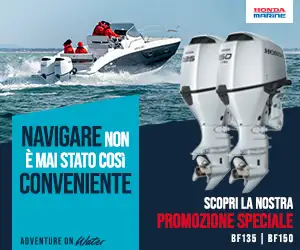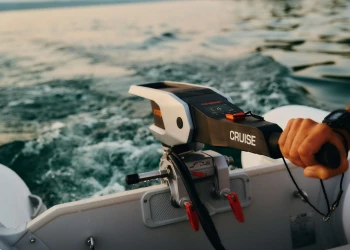
Local women now use high-tech mobility
A good story for an Easter of hope and rebirth - part 1
Two researchers outfitted a fishing community in the mangrove forests of Colombia with Torqeedo electric motors. The local women now use high-tech mobility to collect cockles in the swamps. How does that change their way of life? Can they protect the environment and improve their standard of living at the same time?
The first time Gordon Wilmsmeier and Stefan Sorge travelled to the Colombian mangrove swamps with an electric outboard, the local inhabitants thought they were crazy. At least, that’s how the two researchers remember it. Men and women, young and old, gathered around the German visitors to take a look at the strange object they had brought along. The locals wondered if they were serious about navigating the swamps with an electric motor. This thing looks like a fan, maybe a computer. And it doesn’t make any noise? Will it have enough power?
Wilmsmeier and Sorge were trying to find a way for people in poor, remote, and ecologically sensitive regions to make a sustainable living. Could you protect the environment and improve the standard of living at the same time? How would you get the local population involved in creating new solution.
Gordon Wilmsmeier is a professor of logistics at the University of Bogotá. Stefan Sorge describes himself as a “mixture of a sociologist and an economist” and works at the University of Applied Sciences in Berlin. The two first met in a bar in Santiago de Chile. What started out as a casual acquaintance has given birth to the internationally renowned development project Inno Piangua. In addition to the universities the two academics work for, political institutions including Colombia’s national fisheries association and NGOs such as the WWF are participating.
Colombia’s Pacific coast is home to one of the most diverse ecosystems on the planet. Over 300 native bird species populate the area around the village of Guapi, where Inno Piangua is working. For a conservationist, it sounds like paradise, but the people here face poverty and high rates of drug crime. Electricity service to their stilt homes is limited to a few hours a day because high fuel transport costs make the village’s old, inefficient diesel generators too expensive to run. Mobile phone reception and internet connectivity are limited or non-existent. “Lots of innovations never make it out here,” Wilmsmeier explains.
Most people here earn their livelihoods from fishing, casting their nets into the Guapi River and its tributaries or harvesting piangua, a mollusc which lives in the tidal mudflats and mangrove forests. Their boats are powered by gasoline engines, but fuel is so expensive that it is difficult to earn a living, and the motorboats pollute the very environment that provides the catch. Maybe highly efficient electric outboard motors could help, the scientists thought. So, they contacted Torqeedo.
“We were so impressed with their dedication,” says Lukas Timcke, himself a native of Colombia and the South America coordinator at Torqeedo. The company has supported many development projects in the region. In one nearby example, Torqeedo supplied the motor for a solar-powered boat that now ferries schoolchildren on the Ecuadorian Amazon. “We think it’s important to foster sustainable international development work,” says Timcke. “But we’re no NGO. We want to stay a step ahead of the competition and discover new business models, too.”
End of part 1





